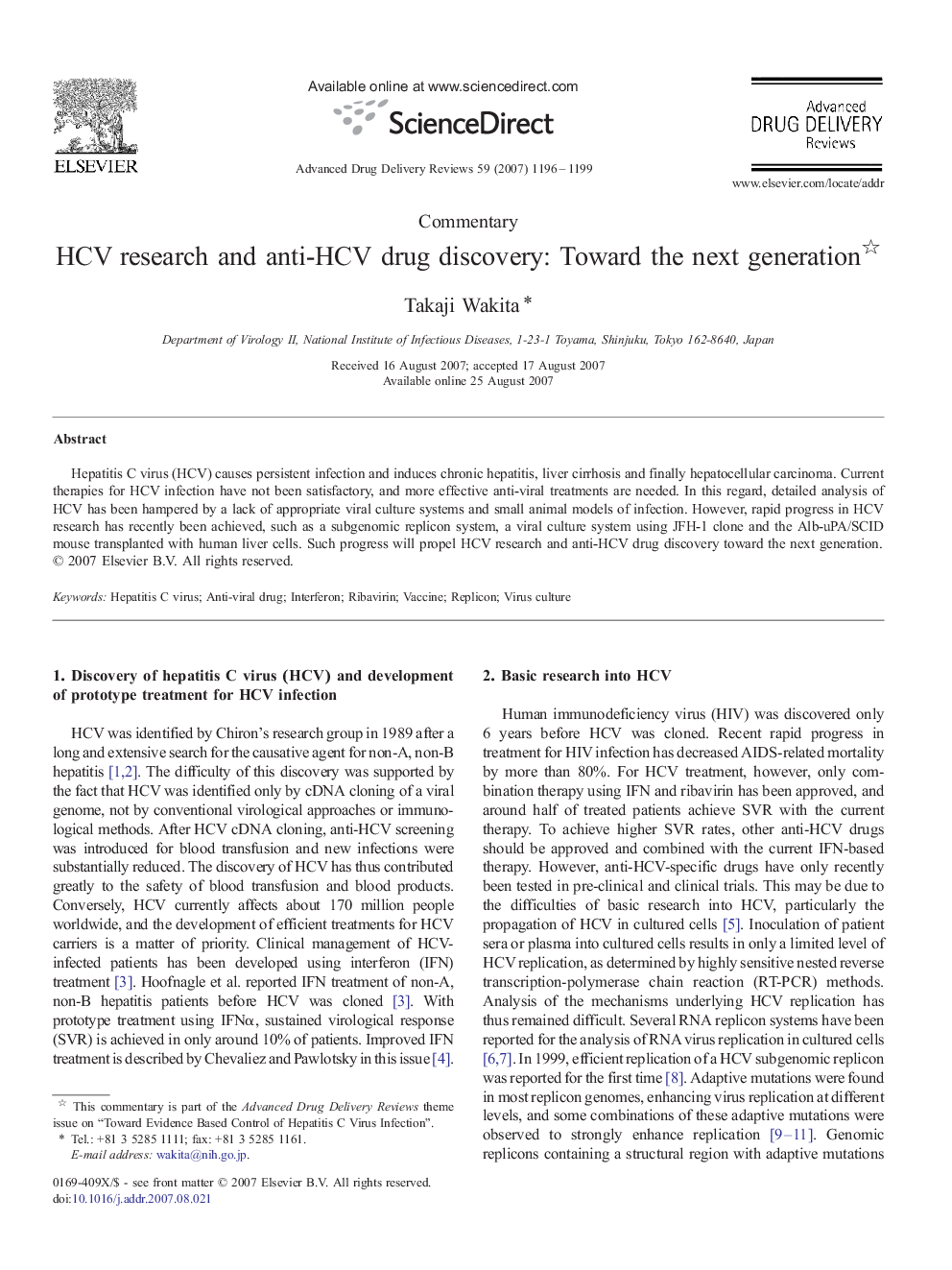| Article ID | Journal | Published Year | Pages | File Type |
|---|---|---|---|---|
| 2071912 | Advanced Drug Delivery Reviews | 2007 | 4 Pages |
Abstract
Hepatitis C virus (HCV) causes persistent infection and induces chronic hepatitis, liver cirrhosis and finally hepatocellular carcinoma. Current therapies for HCV infection have not been satisfactory, and more effective anti-viral treatments are needed. In this regard, detailed analysis of HCV has been hampered by a lack of appropriate viral culture systems and small animal models of infection. However, rapid progress in HCV research has recently been achieved, such as a subgenomic replicon system, a viral culture system using JFH-1 clone and the Alb-uPA/SCID mouse transplanted with human liver cells. Such progress will propel HCV research and anti-HCV drug discovery toward the next generation.
Related Topics
Life Sciences
Biochemistry, Genetics and Molecular Biology
Biotechnology
Authors
Takaji Wakita,
